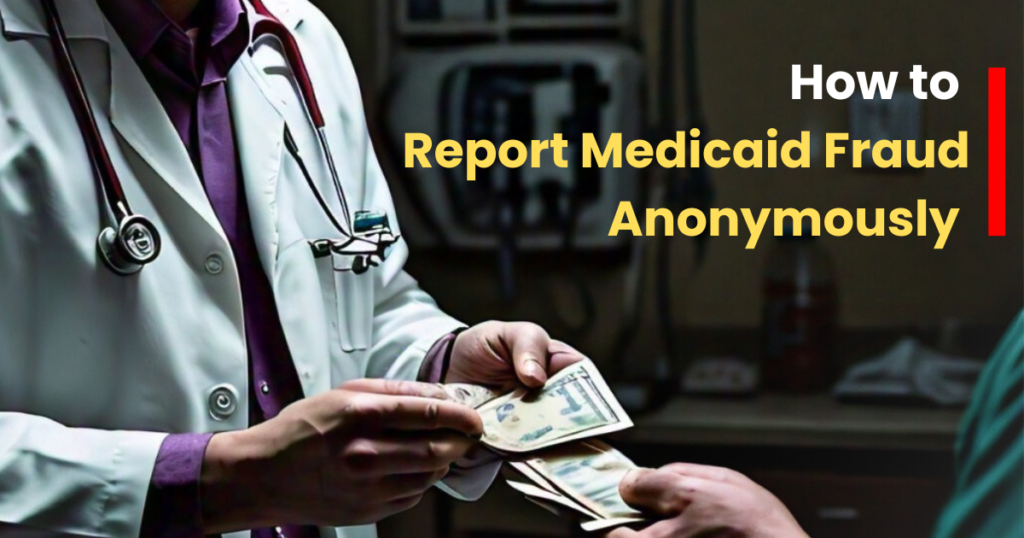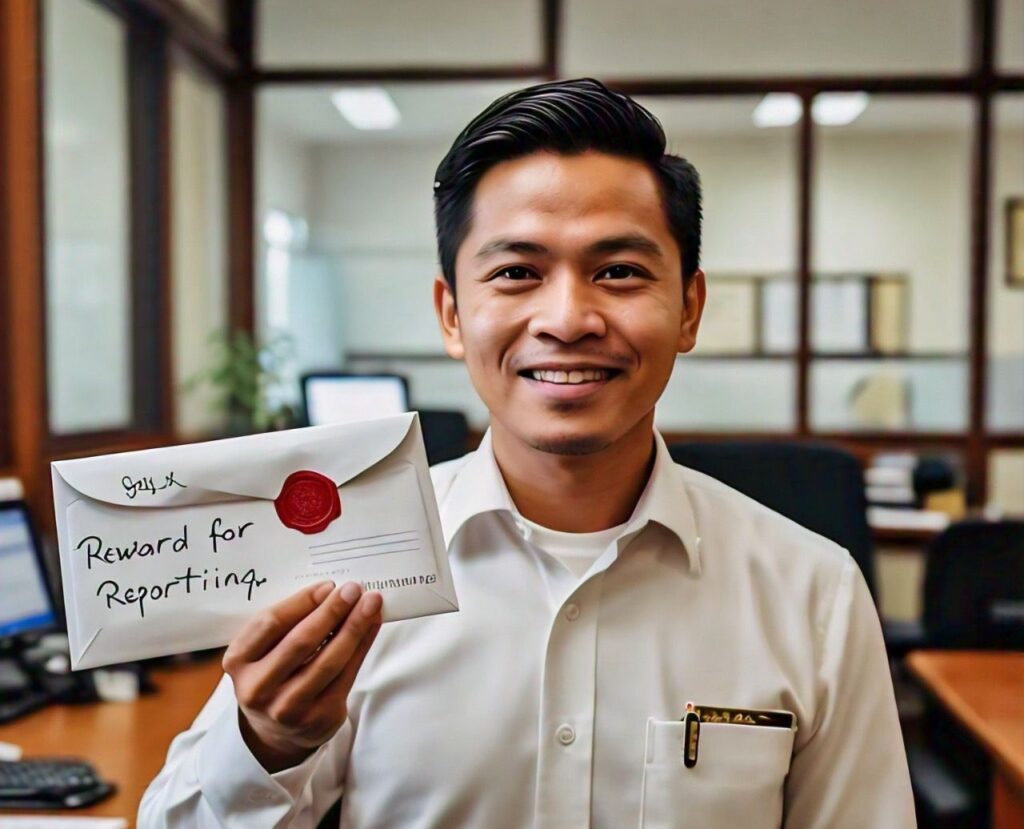How to Report Medicaid Fraud Anonymously

In today’s article lets understand how to “How to Report Medicaid Fraud Anonymously”
Also learn more about
- What are Medicaid Frauds ?
- Why should I report Medicaid frauds
- How to Report Medicaid Fraud Anonymously
- Will I be protected if I choose to disclose my identity?
- How can I ensure my report remains anonymous?
- Can I receive a reward for reporting Medicaid fraud?
- Can I report fraud if I don’t have complete information?
- Can I report Medicaid fraud if I am not sure it’s happening?
1. What are Medicaid Frauds ?
Medicaid fraud is a serious issue that affects millions of people who rely on this essential healthcare program. Whether it’s false claims, billing for services not rendered, or providing unnecessary treatments, fraud can drain resources and compromise care.

Medicaid fraud can take many forms, including:
- Billing for services not provided: Healthcare providers might charge for services or equipment that patients never received.
- Falsifying medical records: Altering or creating fake records to justify treatments or billing.
- Kickbacks: Providers receiving incentives for referrals, which can lead to unnecessary services.
- Prescription fraud: Doctors prescribing medications that aren’t needed, often to receive benefits from pharmaceutical companies.
The above examples represent only a few types of Medicaid fraud; there are many other ways fraud can occur.
If you suspect Medicaid fraud, it’s crucial to report it.
But what if you want to remain anonymous?
Stay continued to learn how to How to Report Medicaid Fraud Anonymously.
2. Why should I report Medicaid frauds
Reporting Medicaid fraud helps protect the integrity of the healthcare system and ensures that funds are used for those who truly need them. It also prevents the rise of healthcare costs and enhances the quality of care.
Here are some key reasons why you should take action if you suspect fraud
- Protecting Public Funds
- Ensuring Quality Care
- Preventing Healthcare Cost Increases
- Promoting Fairness and Integrity
- Legal and Ethical Responsibility
- Potential Rewards
- Protecting Vulnerable Populations
- Strengthening the Healthcare System
3. How to Report Medicaid Fraud Anonymously

Understand the following ways on How to Report Medicaid Fraud Anonymously
A. Use Hotlines and Online Forms
Many states have dedicated hotlines and online forms specifically for reporting Medicaid fraud. These platforms often allow for anonymous reporting. Here’s how to use them:
- Hotlines: Call the Medicaid fraud hotline for your state. You can find the number on your state’s Medicaid website. When you call, you can choose not to disclose your identity.
- Online Forms: Visit your state’s Medicaid fraud reporting page. Most forms have an option to submit information anonymously. Be as detailed as possible in your report to aid the investigation.
B. Contact the Office of Inspector General (OIG)
The OIG is responsible for investigating Medicaid fraud on a national level. They have an anonymous tip line and an online form:
- OIG Hotline: Call 1-800-HHS-TIPS (1-800-447-8477). You can remain anonymous when providing information. This method works very well on How to Report Medicaid Fraud Anonymously.
- OIG Online Form: Go to the OIG website and fill out the form. There’s an option to withhold your personal information.
C. Use Whistleblower Protection Programs
If you’re involved in the healthcare industry and fear retaliation, you might consider the federal False Claims Act, which protects whistleblowers. Although this might require disclosing your identity initially to an attorney, your identity can remain confidential during the investigation.
D. Send Anonymous Letters
Another method is to send a detailed letter to the appropriate authorities. Ensure your letter contains all relevant details, such as the names of involved parties, dates, types of fraud, and any evidence you might have. Send this to:
- Your state Medicaid fraud control unit
- The OIG
- Your state’s Attorney General
Consult with an attorney confidentially to understand your rights and options.
E. What Information to Include in Your Report
When reporting Medicaid fraud, provide as much detail as possible:
- Names of individuals or entities involved
- Specific details of the fraudulent activities
- Dates and times when the fraud occurred
- Any documentation or evidence supporting your claims
- Your contact information (optional, if you choose to remain anonymous)
4. Will I be protected if I chose to disclose my identity
Yes, there are legal protections in place for whistleblowers. Under the federal False Claims Act, individuals who report fraud are protected from retaliation. It is advisable to consult with an attorney if you have concerns about potential repercussions.
5. How can I ensure that my report remains anonymous
When reporting anonymously, do not provide any personal identifying information. Use anonymous reporting options available through hotlines, online forms, or by sending an anonymous letter.
This ensures that you report Medicaid Fraud Anonymously
6. Can I receive a reward for reporting Medicaid fraud ?

Yes, under certain circumstances, whistleblowers may be eligible for a financial reward if the reported fraud leads to a recovery of funds. This often requires disclosing your identity and working with legal counsel.
Reward Eligibility and Amount
The primary legislation that allows for rewards in cases of Medicaid fraud is the Federal False Claims Act. Under the FCA, individuals who report fraud involving government programs, including Medicaid, can file a qui tam lawsuit on behalf of the government. A qui tam lawsuit is a type of legal action that allows whistleblowers to sue fraudsters on behalf of the government and share in any recovered funds.
If the lawsuit is successful, and the government recovers funds from the fraudsters, you may be entitled to a portion of the recovered amount as a reward. The reward can range from 15% to 30% of the total recovery, depending on several factors, including:
- Government Intervention: If the government intervenes in the case, the reward is typically between 15% and 25% of the recovered funds.
- No Government Intervention: If you proceed without government intervention and still win the case, the reward can be between 25% and 30% of the recovered funds.
- Contribution and Assistance: The amount of the reward also depends on the extent and quality of your contribution to the case and the level of assistance you provided during the investigation.
7. Can I report fraud if I don’t have complete information?
Yes, you can still report suspected Medicaid fraud even if you don’t have all the details. Provide as much information as you can, and the authorities will conduct further investigations to uncover additional evidence.
8. Can I report Medicaid fraud if I am not sure it’s happening?
Yes, if you suspect Medicaid fraud, you should report it. It’s better to raise a concern and let the authorities investigate than to allow potential fraud to go unchecked. Your report could be the key to uncovering and stopping fraudulent activities.
By reporting Medicaid fraud, you play a crucial role in maintaining the integrity of the healthcare system and ensuring that resources are used properly to benefit those in need. Remember, your anonymity is respected, and every report contributes to a more transparent and accountable healthcare system.
While reporting Medicaid fraud is a noble and necessary action to uphold the integrity of the healthcare system, it comes with potential drawbacks, including the risk of retaliation, emotional stress, legal and financial risks, uncertain outcomes, and impact on personal relationships. However, by taking steps to mitigate these risks, such as using anonymous reporting channels, understanding legal protections, seeking support, and making informed decisions, you can navigate these challenges more effectively. Remember, the benefits of protecting public funds and ensuring fair and honest healthcare practices often outweigh the potential drawbacks.
EZ Settle Solutions : Reliable RCM Services
EZ Settle Solutions is a global innovator in the fields of medical billing & coding services in USA.
The primary objective of our solutions is to ensure healthcare providers receive rightful compensation for their services, while insurance coding aims to accurately submit medical visits or procedures to insurance companies with the appropriate codes for proper processing.
Talk to our RCM Experts to receive a Free Assessment 346-335-4093 / info@ezsettlesolutions.com

1 Comment
https://ezsettlesolutions.com/how-to-report-med...
July 30, 2024[…] Step by step guide on "How to report Medicaid fraud anonymously". Also understand the types of Medicaid frauds and how much rewards are received for reporting Medicaid frauds. […]